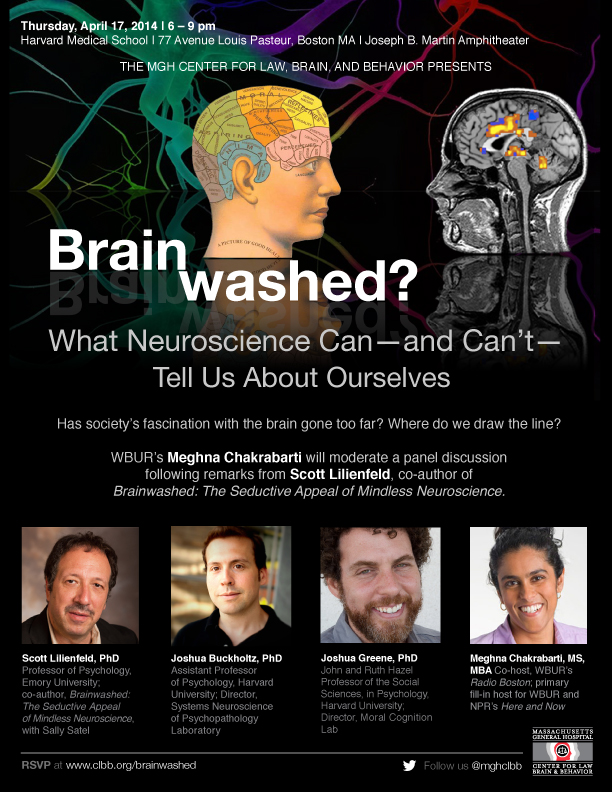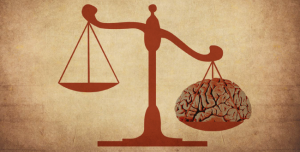 While brain science has helped to characterize many aspects of the human experience, there is no consensus about whether it could also be used to help address some of society’s “big” problems.
While brain science has helped to characterize many aspects of the human experience, there is no consensus about whether it could also be used to help address some of society’s “big” problems.
On Thursday, April 17, 2014, CLBB hosted a conversation at the Joseph B. Martin Conference Center of Harvard Medical School, with experts in psychology, philosophy and neuroscience to debate whether neuroscience has anything useful to add to our understanding of thorny ethical and legal questions, such as whether addiction should be considered a “brain disease,” the nature of free will, and how societies should determine personal responsibility. Video of the event is included below in its entirety and at our Vimeo page.
A recurring theme of the evening’s discussion was how to determine which level of analysis – from molecules and genes to brain structures and systems to individuals and social systems – is the most important to consider for understanding the mind. While all panelists agreed that any discussion of the brain’s contribution to behavior should be embedded within a multi-level approach, there was considerable disagreement around whether the brain’s contribution should be considered privileged or not. Continue reading »




